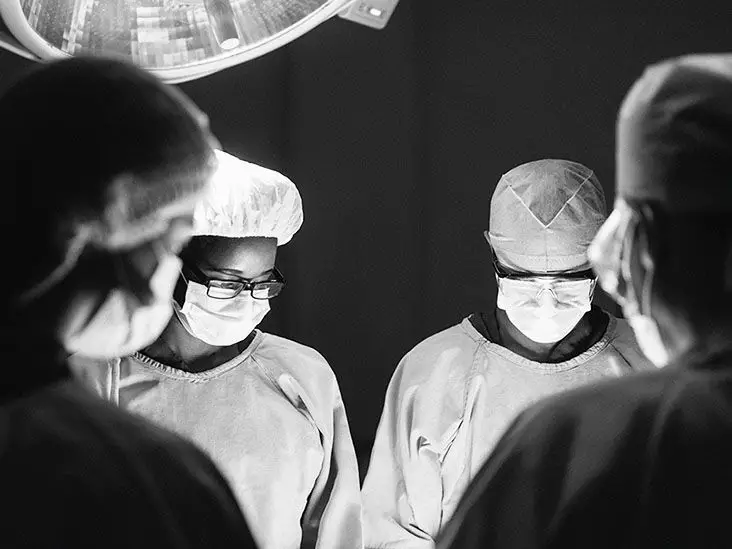Thyroid cancer is a formidable opponent, characterized by abnormal growths within the butterfly-shaped thyroid gland located at the base of the neck. This gland plays a crucial role in regulating metabolism, growth, and overall bodily functions through hormone production. The emergence of cancerous cells can lead to a spectrum of thyroid cancers, ranging from relatively indolent forms that are easily treatable to rare, aggressive types that demand immediate and comprehensive interventions. As the primary treatment modality, surgery, specifically thyroidectomy, becomes an essential step in this complex journey toward recovery.
Defining the Scope of Thyroid Surgery
Thyroidectomy encompasses the surgical removal of part or the entirety of the thyroid gland, a decision predicated on various factors including tumor type, size, and potential metastasis. Surgeons typically execute two main surgical approaches: lobectomy and total thyroidectomy. A lobectomy involves excising one lobe of the gland, while a total thyroidectomy entails complete removal of the gland. In cases where cancer has transcended the thyroid, adjacent lymph nodes may also be extracted. Each of these surgical options is meticulously tailored to address the individual patient’s needs, all while maintaining a focus on preserving surrounding anatomical structures whenever feasible.
Advancements in surgical techniques have further refined thyroid cancer surgery, allowing for minimally invasive options that promote quicker recovery and minimize scarring. General anesthesia plays a pivotal role in ensuring that patients remain pain-free and unconscious during surgery, fostering a sense of safety in the operating room while permitting doctors to focus entirely on the task at hand.
The Diagnostic Journey: Understanding Thyroid Cancer
Before embarking on surgical treatment, patients undergo a comprehensive diagnostic evaluation. This process typically begins with a physical examination focusing on the neck, coupled with blood tests to assess thyroid function. Imaging studies such as ultrasound, CT scans, or MRIs help visualize the tumor’s characteristics, while fine needle aspiration biopsies confirm the diagnosis of cancer. The pathway to surgery is paved with knowledge; understanding the specific type of thyroid cancer is crucial for developing a tailored surgical and post-surgical plan.
Risk factors, such as radiation exposure, familial history of thyroid conditions, and certain genetic predispositions, further inform the clinical approach. The average age of diagnosis stands at approximately 51, underscoring the importance of awareness and early detection in managing thyroid health.
Preparing for Surgery: The Road to Recovery
Preparation for thyroid surgery is multi-faceted, entailing detailed discussions between the surgeon and patient about surgical options, potential complications, and anticipated outcomes. Patients receive essential instructions regarding medication adjustments and logistical considerations for their hospital stay. As a standard, most thyroid surgeries necessitate an overnight hospital visit, although some procedures allow for same-day discharge, particularly with lobectomy.
Post-operative care is equally critical to a successful recovery. Patients typically undergo an initial period focused on rest and gentle neck movement, evolving gradually into a return to regular activities. It’s important to recognize that while the prospect of surgery can be daunting, the support of loved ones during recovery plays a crucial role in emotional and practical aspects of healing.
What to Expect During Surgery
For those undergoing thyroidectomy, the intricacies of the surgical procedure may be a source of anxiety, yet understanding what happens can alleviate some of that fear. The operation involves a careful incision at the front of the neck, with surgeons adopting techniques to maximize cosmetic results and safeguard vital structures such as the recurrent laryngeal nerve, which is instrumental in vocal function. The surgeon’s proficiency is critical; specific nerve monitoring technologies may be utilized to minimize post-surgical voice changes, enhancing the likelihood of a smooth recovery.
Effective management of post-operative care is crucial; patients must understand the potential for temporary voice changes resulting from intubation or surgical irritation, and that full recovery of vocal function can take time. For those who have undergone total thyroidectomy, lifelong thyroid hormone replacement therapy becomes a necessary regimen, emphasizing the long-term implications of the surgical decision.
A Journey Toward Empowerment and Resilience
Thyroid cancer surgery is more than a medical procedure; it’s a transformative experience that requires a balance of knowledge, support, and resilience. The potential complications associated with surgery, including voice changes and calcium imbalances, must be communicated openly between patients and their surgical teams. Empowered with this understanding, patients can navigate their treatment journey with confidence, transforming uncertainty into hope.
As the medical community continues to refine surgical techniques and patient care protocols, the landscape of thyroid cancer treatment becomes increasingly optimistic. Every step taken toward managing thyroid cancer not only serves the individual but also contributes to the broader conversation about cancer treatment and survivorship. In embracing this journey, patients reclaim their narrative, armed with the knowledge and support to thrive in the face of adversity.

